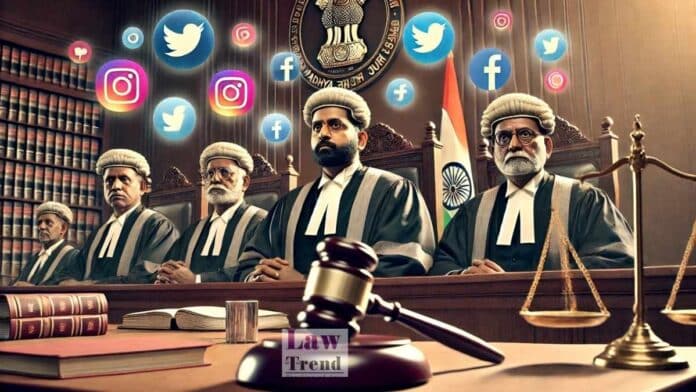In a significant move to uphold the dignity of the judiciary, the Madhya Pradesh High Court has restrained social media platforms, media agencies, and the general public from unauthorized use of live-streamed court proceedings. The ruling comes in response to a petition by Dr. Vijay Bajaj, who highlighted the growing trend of court footage being
To Read More Please Subscribe to VIP Membership for Unlimited Access to All the Articles, Download Available Copies of Judgments/Order, Acess to Central/State Bare Acts, Advertisement Free Content, Access to More than 4000 Legal Drafts( Readymade Editable Formats of Suits, Petitions, Writs, Legal Notices, Divorce Petitions, 138 Notices, Bail Applications etc.) in Hindi and English.




